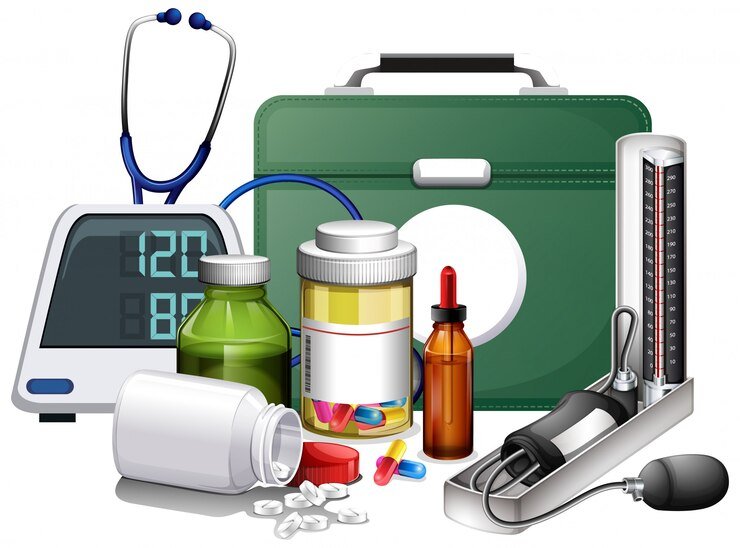Have you ever wondered how to be better prepared for caregiving difficulties? Being ready with essential tools can make caregiving less stressful and more effective. Caregivers face unpredictable situations daily, and having the right resources can ease the process.
This article is about creating a comprehensive checklist of medical supplies to ensure no critical item is overlooked. Caregivers face unpredictable situations daily, and having the right resources can ease the process. Let’s explore how to organise, manage, and keep track of everything caregivers need.
Prioritising Essential Items
Start by focusing on items used daily. These include basic wound care products, gloves, and disinfectants. Ensure you have a variety of bandages, gauze, and adhesive tapes for different wound types. Stock ample cleaning products to maintain hygiene and prevent infections. It’s also helpful to include thermometers and basic diagnostic tools in your kit. Regularly check these supplies to avoid running out at critical times or during emergencies.
Organising Tools for Quick Access
Keep everything in an easy-to-reach location for smooth caregiving. Use labelled storage containers, shelves, or portable bags to categorise your items effectively. Group similar products together, like first-aid items, hygiene tools, or mobility aids. This saves time and reduces stress during emergencies when every second counts. Additionally, keep instructions or guides close to relevant tools for quick reference. Proper organisation also helps caregivers identify what needs replenishing without having to search through clutter.
Monitoring Usage and Expiry Dates
Supplies don’t last forever, and expired items can be ineffective or even unsafe. Keep an inventory list to track what you have on hand. Regularly check expiry dates, especially for medications, sterile products, and disposable gloves. Mark items that are nearing expiration to replace them promptly. Replace outdated items promptly to ensure safety and efficiency. A well-maintained record also helps you manage your budget more effectively by avoiding overstocking unnecessary items.
Planning for Specific Needs
Every caregiving situation is unique, requiring tailored solutions. Think about the specific needs of the person under your care, whether they need advanced tools or specialised equipment. For example, individuals with mobility challenges might require wheelchairs, walkers, or transfer boards, while others may need respiratory or feeding support equipment. Make sure your checklist includes these items, along with extra supplies for unexpected situations.
Managing Supplies for Mobility Support
Mobility aids are crucial for individuals with movement challenges, and their availability can significantly impact caregiving quality. Include items like wheelchairs, canes, or transfer boards on your checklist. Ensure these tools are in good condition, clean, and stored appropriately. Consider keeping spare parts, repair kits, or backup tools for unexpected breakdowns. Check regularly for wear and tear to maintain the safety of the person using them.
Adding Comfort and Personal Care Items
Comfort and personal care play a significant role in caregiving. Ensure you have items like cushions, blankets, and specialised mattresses to prevent bedsores or discomfort. Stock personal hygiene products like shampoo, soap, and oral care items for the person you’re assisting. Comfort-focused tools, such as heating pads or cold packs, can provide relief for chronic conditions.
Regular Restocking and Budgeting
Running low on essentials can disrupt caregiving routines and add unnecessary stress. Create a schedule to review your supplies weekly or monthly to stay ahead of your needs. Purchase items in bulk whenever possible to save money and avoid frequent shopping trips. Look for promotions or discounts from reliable suppliers to manage costs effectively. Keeping track of what’s needed and buying strategically ensures you’re always prepared, no matter the situation.
Staying prepared with the right tools simplifies caregiving responsibilities. A thorough checklist tailored to the needs of those you care for is essential. Make sure to include medical supplies, comfort items, and tools for mobility while planning for specific needs. Organising and monitoring inventory ensures everything is up-to-date and easy to find. Keeping everything regularly updated guarantees safety, efficiency, and peace of mind.



